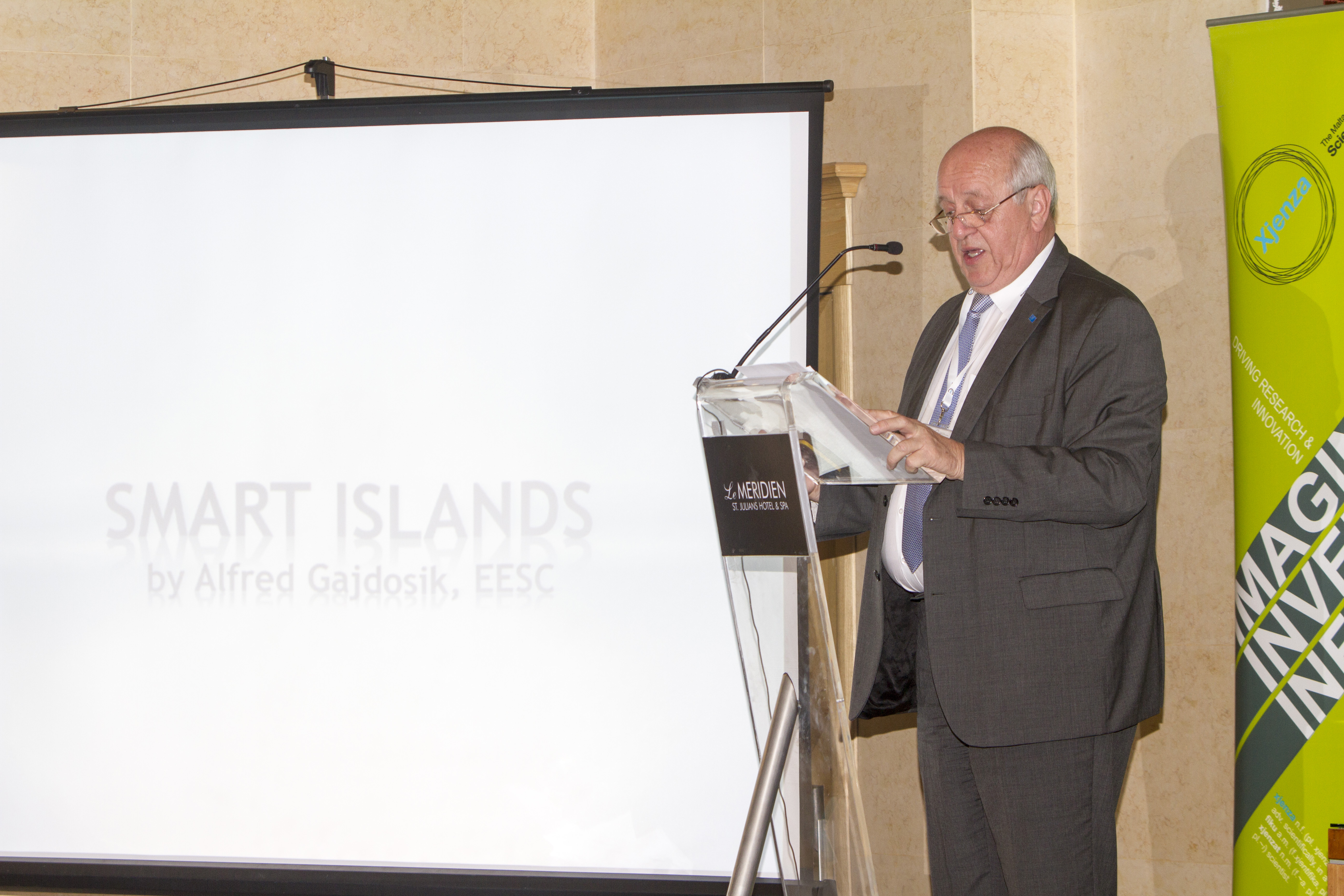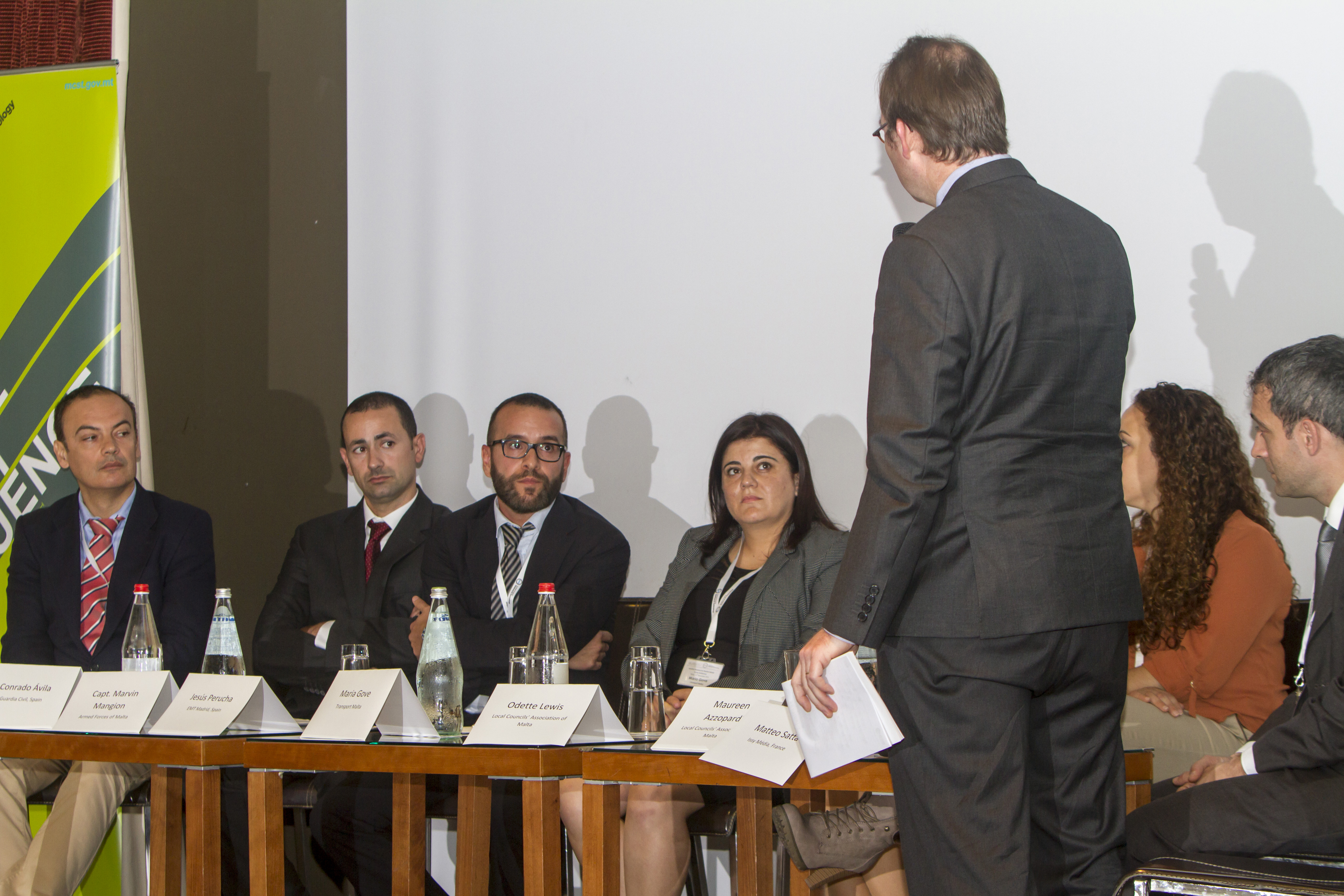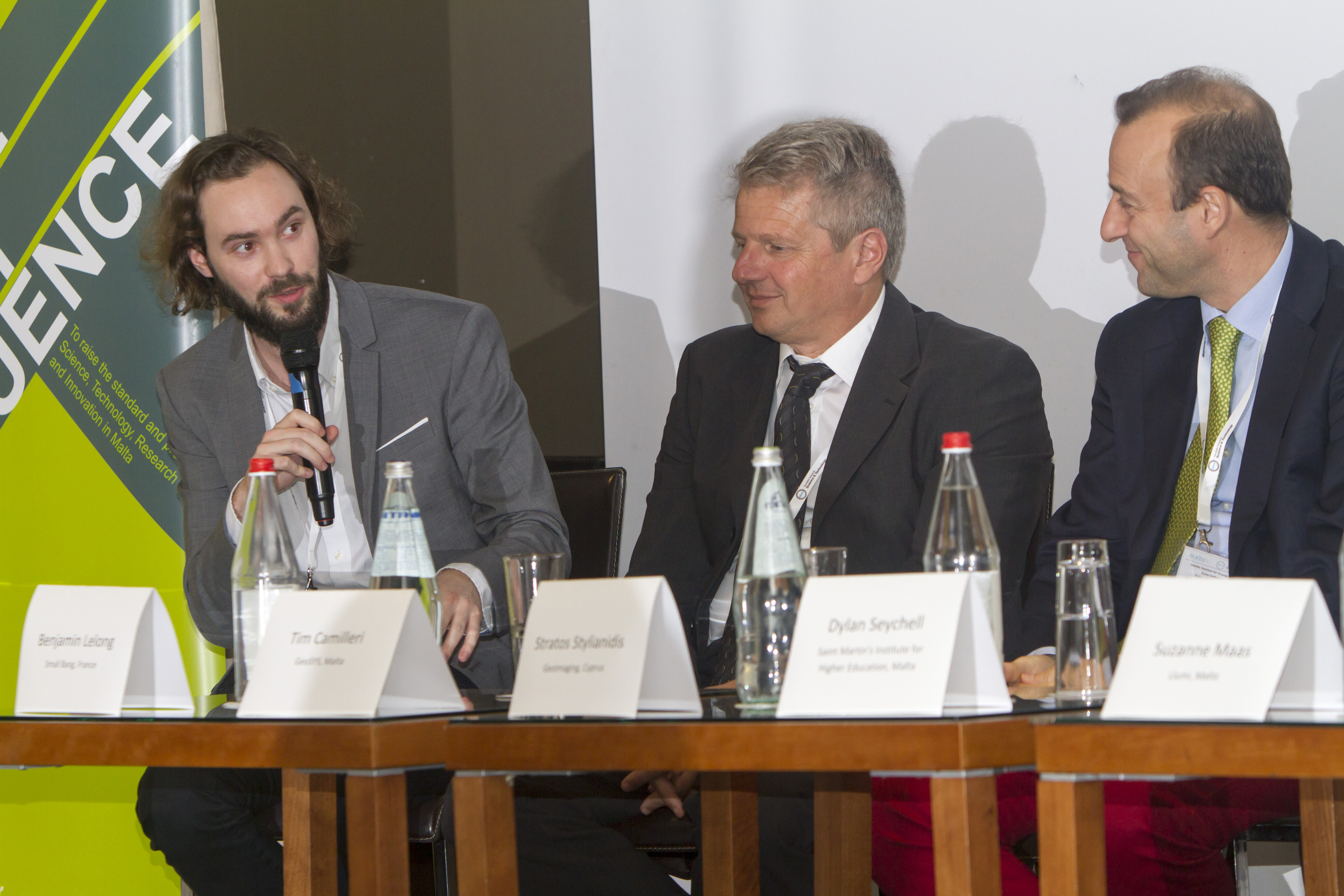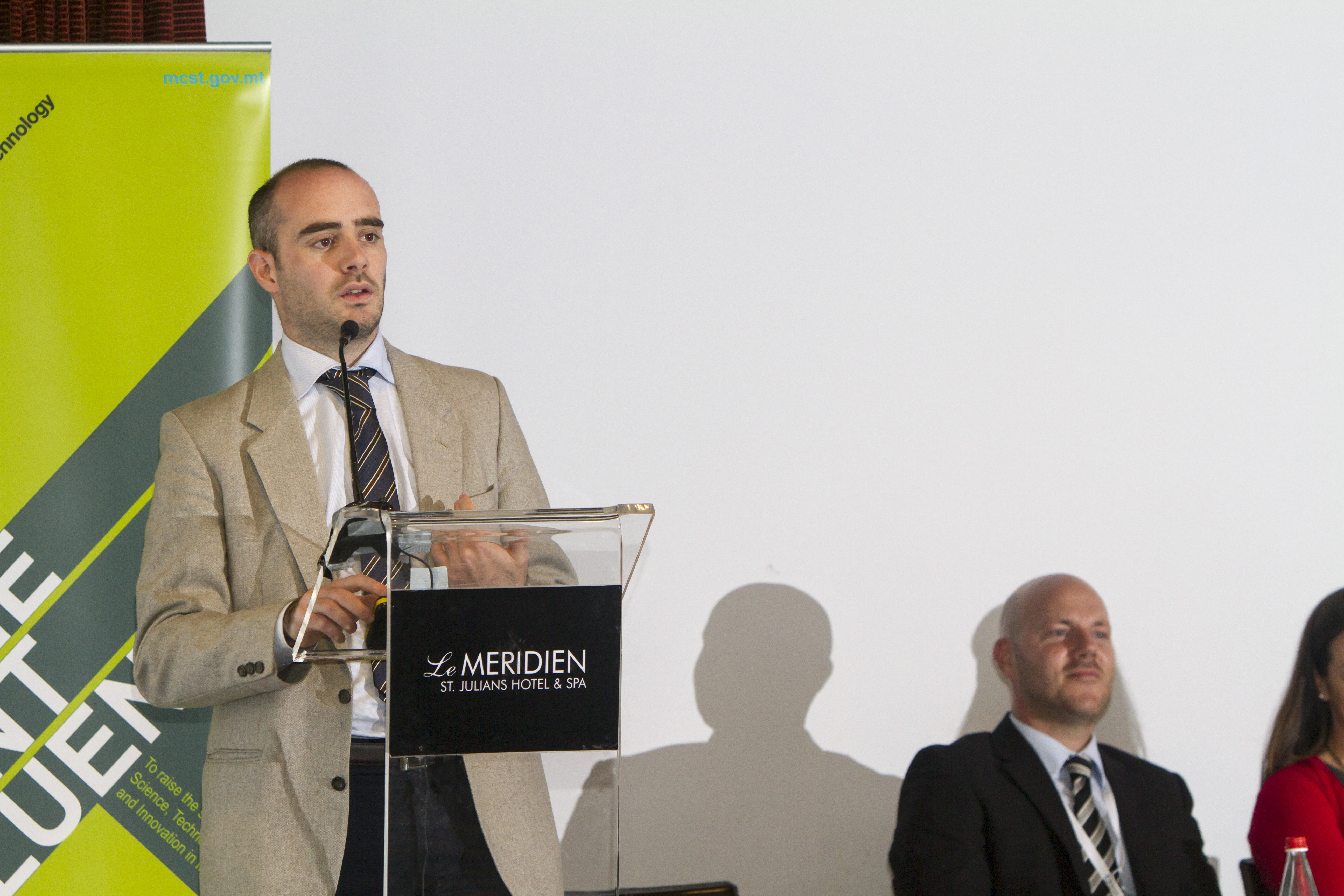The conference brought together 90 participants from Maltese and European public authorities, SMEs, universities and policy-makers.
The keynote speeches explained the concept of “smart island”. Its contribution to the Digital Agenda for Europe was highlighted by Mr. Gajdosik from the European Social and Economic Committee, who presented the conclusions of a consultation on the topic. A special focus was made on Malta national Smart Specialisation Strategy.
 Islands have a real need for new services that can tackle the specific challenges they are facing such as mobility or water management. Thanks to their dimension, islands are the perfect scale to explore and implement cutting-edge solutions.
Islands have a real need for new services that can tackle the specific challenges they are facing such as mobility or water management. Thanks to their dimension, islands are the perfect scale to explore and implement cutting-edge solutions.
Islands can easily become living-labs for new technologies in fields such as power supply, turning into test-sites for the extraction of marine, tidal, wave, solar and wind energies for instance.
Satellite applications are perfectly in line with this effort, and should be fully integrated to those experimentations, in order to create added-value services. This will in turn lead to creating new jobs, thus preventing the exodus of workers from the islands.
Smart governments were at the centre of the first session. It was organised as a twinning exercise between Maltese and European administrations, both with the same prerogatives. Good practices presentations were grouped in three topics: local governance, public transports and maritime surveillance. 
Speakers explained what challenges brought them to adopt these innovative solutions. Ms. Maureen Azzopardi from the Local Councils’ Association of Malta insisted on the crucial need of incentives for public authorities that often do not have sufficient budget to invest heavily on ICT-based services.
A milestone of the conference was the launch of the “Satellite solutions for a smarter Malta” App Challenge. This challenge aims at enhancing the development of new services based on satellite data. Prof. Saviour Formosa from the Malta Environment and Planning Agency presented the main “painpoints” of his organisation, that have to be adressed by the participants to the challenge.
In the afternoon, SMEs and start-ups showcased products and services integrating satellite data. Fields of applications were as varied as tourism, forest management and urban planning. Entrepreneurs also presented their business models.

All kind of data sources are now massively available, be it on climate change or urban development. Big Data is indeed everywhere and represent an inexhaustible source of information for developing forefront ICT-based services. Moreover, crowdsourced data opens new perspective for location-based services that can integrate even more varied parameters, such as traffic congestion or jellyfish presence, as explained by Mr. Tim Camilleri from Geosys.
Finally, support mechanims for developing satellite-based services were presented, together with satellite data sources. Malta national research and innovation schemes were introduced, as well as Horizon 2020 call for projects.
 The Copernicus and Galileo programmes, the two satellite infrastructure funded by the European Union, were especially discussed.
The Copernicus and Galileo programmes, the two satellite infrastructure funded by the European Union, were especially discussed.
Copernicus provides free raw data about environment and security. This data can be downloaded from a web portal. Since its launch, there has been over 2 million downloads. Galileo, Europe’s own satellite navigation system, is under development. EGNOS supplements navigation systems by increasing the reliability and accuracy of positioning signals.
Mr. Vojtech Fort from the GSA, the European GNSS Agency, explained that the location-based services market is ever growing: by 2023 there will be nine billion GNSS devices worldwide.
Final users, both from the public and private sectors, frequently underline the lack of expertise among their staff. Training is therefore needed for users to be able to master the use of satellite data, especially regarding Earth Observation. These trainings can be provided by various entities, both at European (Copernicus Marine service for instance) and national levels.
The event was co-organised by the Malta Council for Science and Technology, in collaboration with Eurisy – a European association of space agencies with over 25 years of experience bridging space and society.

